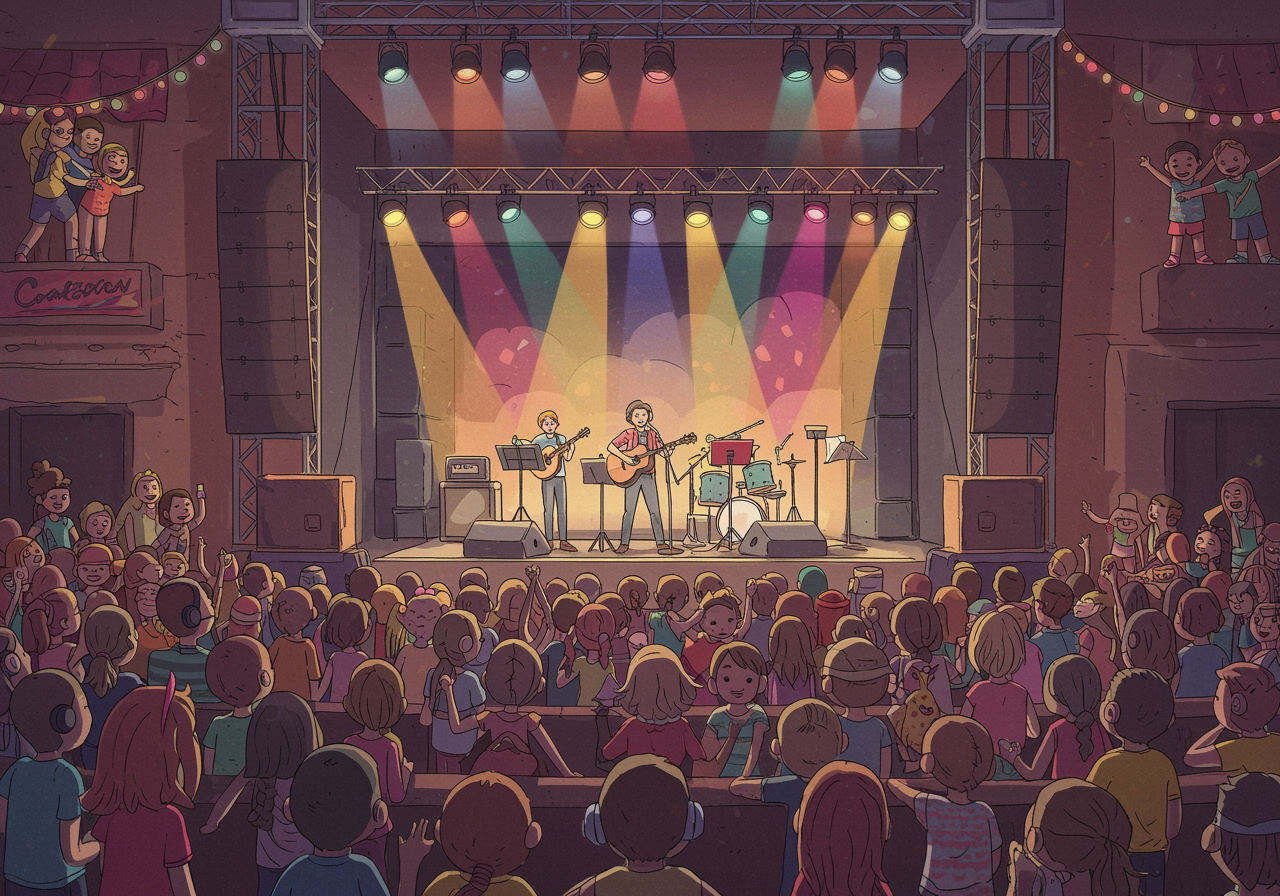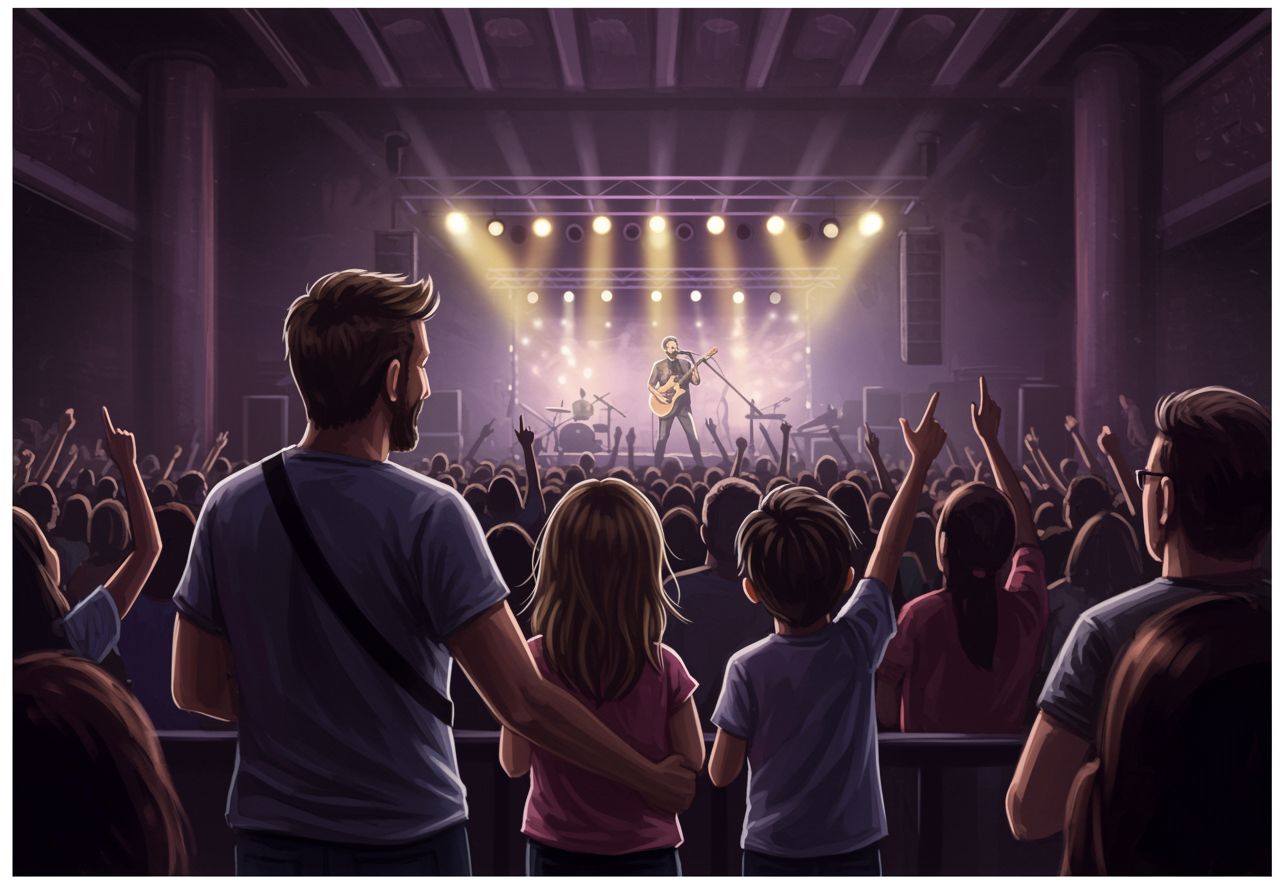Why Live Stories Hit Different: The Magic of Music and Performance
Discover why your heart races at concerts but stays calm reading the same lyrics
Uncover the fascinating science behind why stories told through live music and performance create deeper emotional connections than books or movies.
Overview
Have you ever noticed how hearing your favorite song live feels completely different than streaming it at home? Or how watching a school play makes you feel more invested than watching the same story on Netflix? There’s actual science behind why stories told through live music and performance create such powerful connections. This isn’t just about entertainment preferences – it’s about how our brains are wired to respond to shared, real-time experiences. Understanding this helps explain everything from why concerts sell out to why TikTok dances go viral.

Understand in 30 Seconds
Get up to speed quickly
-
- Your Brain on Live Performance: Live music and performance activate multiple parts of your brain simultaneously – hearing, seeing, feeling vibrations, and reading emotions from real faces in real time.
-
- The Mirror Effect: When you watch someone perform live, your brain actually mirrors their emotions and movements, creating a deeper connection than watching a screen.
-
- Shared Energy = Amplified Feelings: Being in a crowd experiencing the same story at the same moment creates ’emotional contagion’ – feelings literally spread from person to person.
- No Rewind Button: Live performance happens once and can’t be paused or replayed, making every moment feel precious and creating stronger memories.
Real Life Scenario
Situations you can relate to

Role Play
Spark a conversation with “what if” scenarios
- Role play: Take turns being the ‘director’ and ‘audience member.’ The director reads a dramatic scene from any book while the audience member sits with their eyes closed. Then act out the same scene with voices, movements, and props. Discuss which felt more emotionally intense.
What if you could only experience your favorite song one way for the rest of your life – through headphones or live in concert?
- Role play: Play the same song two ways: first through headphones in separate rooms, then gather together and play it on speakers while dancing or singing along. Notice how the shared experience changes the feeling.
What if movies could only be watched with the actors performing live in front of you every time?
- Role play: Pick a simple movie scene and ‘perform’ it live for each other, then watch the same scene on a screen. Talk about which version made you feel more connected to the characters and why.
FAQs
Frequently asked questions people want to know
Is it just because live music is louder? Volume is part of it, but not the main reason. The vibrations you feel, the visual cues from real performers, and the shared experience with others all combine to create deeper emotional connections than audio alone.
Why don’t books affect me the same way even though I use my imagination? Reading engages your imagination beautifully, but live performance adds real sensory input and social connection. Your brain responds differently to imagined experiences versus actual sensory data combined with real human emotions happening right in front of you.
Examples in the Wild
See how this works day to day
-
- Taylor Swift’s Eras Tour broke attendance records worldwide, with fans reporting more intense emotional experiences than listening to albums, despite singing the same songs (Billboard Music News 2023)
-
- Studies show that people who attend live theater report stronger emotional reactions and better memory of the story compared to watching filmed versions of the same plays (Journal of Applied Psychology 2023)
-
- Brain imaging research reveals that watching live performances activates mirror neurons more intensely than watching recorded performances (Neuroscience & Biobehavioral Reviews 2022)
- Community theaters report that audiences form stronger connections to local stories and characters compared to blockbuster movies, despite smaller budgets and production values (American Theatre Magazine 2023)
In Summary
What you should know before you start
-
- Live performance engages multiple senses and brain regions simultaneously, creating richer experiences than single-sense media
-
- Sharing emotional experiences with others amplifies feelings through ’emotional contagion’ and mirror neurons
-
- The unrepeatable, real-time nature of live performance makes moments feel more precious and memorable
- Direct connection with real performers creates authentic emotional responses that recorded media can’t fully replicate
Pro-tip for Parents
You got this!
Keep an Eye Out For
Find these examples in everyday life
-
- Local theater productions, school shows, or community concerts where you can observe audience reactions and discuss the shared experience
-
- Social media posts about concert experiences vs. album listening – notice how people describe the differences
- News about artists choosing to do surprise acoustic performances or intimate venues despite being able to fill stadiums
Explore Beyond
Look up these related research topics
-
- How does the psychology of live performance connect to why people enjoy sports events more in person?
-
- What role does technology play in trying to recreate live experiences through VR and immersive media?
- How do different cultures use music and performance to build community connections?